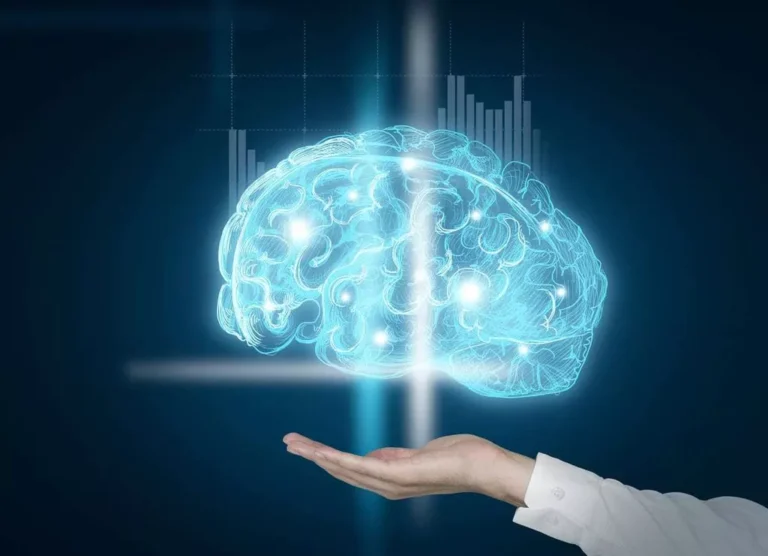Furthermore, the presence of a number of prime pharmaceutical corporations in the region is investing heavily in strengthening their place in the biopharmaceutical landscape. The rapid improvement of the biotechnology and the biologics is positively impacting the market growth in North America. Clinical Trials Optimization is the second-largest software, leveraging AI to automate patient recruitment, protocol adherence, and trial success prediction. About 37% of worldwide medical trials used AI for patient stratification and real-time information monitoring in 2024. GlaxoSmithKline is incorporating AI into its drug discovery pipeline to enhance its analysis capabilities. By utilizing ai in pharma AI to design and optimize new drug candidates, GSK has achieved notable successes, including identifying a promising molecule that progressed to medical trials.
Many fashions function as “black boxes,” making it difficult for regulators to totally understand or explain their decision-making. The way forward for drug manufacturing is quickly changing into intertwined with clever automation, and the numbers say all of it. In Accordance to a PwC survey, 79% of pharmaceutical executives imagine that clever automation will have a significant impression on their business within the subsequent 5 years. In simple terms, it’s transforming the finest way medication are made, moving from a traditional, manual approach to a highly efficient, AI-driven system. AI-powered predictive upkeep identifies points earlier than they happen by analyzing sensor information from gear. This proactive approach helps avoid downtime, maintaining manufacturing working easily and maximizing efficiency and uptime.
How Is Ai Transforming Drug Discovery?
With AI, drug growth timelines may go from greater than 5 years to less than 18 months while additionally ensuring larger clinical trial success rates (almost double). Europe offers a balanced landscape where innovation and ethics co-exist under strong governance frameworks. The EMA’s AI workplan and the EU AI Act classify healthcare algorithms as high-risk, demanding rigorous validation but providing standardized pathways to approval.
AI within the pharmaceutical trade is revolutionizing drug discovery by sifting via extensive knowledge rapidly, optimizing scientific trials, and enabling tailored patient care. The technology accelerates analysis processes, boosts accuracy, and enhances total effectivity, leading to the development of faster and more practical ecommerce mobile app therapies. Precision medicine is an strategy that makes use of details about a person’s genetic, environmental, and lifestyle variabilities to develop personalized remedies and prevention methods. AI performs an important function in precision medication by analyzing giant volumes of genomic, medical, and affected person data to establish patterns and predictions that help personalize healthcare. AI can use advanced algorithms to discover out the most effective remedies for a selected patient, predict potential antagonistic reactions, and optimize drug dosages. This results in simpler remedies, fewer unwanted effects, and a more individualized approach to disease administration.
Aspirin, initially developed as a ache reliever and anti inflammatory drug, was later discovered to have blood-thinning properties. It is now extensively used to reduce back the risk of heart assaults and strokes for at-risk people. Ozempic, originally accredited for type 2 diabetes administration, has been repurposed to also be a weight reduction drug.

The pharma trade faces mounting pressures to discover and develop new drugs https://www.globalcloudteam.com/ quicker and at lower prices. AI has emerged as a promising software to help overcome long-standing challenges like excessive failure charges, lengthy improvement timelines, and resource inefficiency. As AI increasingly impacts drug improvement, regulatory agencies just like the FDA and EMA are stepping up to ensure safety and efficacy. The FDA, recognizing AI’s transformative potential, has launched initiatives just like the Software Pre-Certification Program to streamline the approval course of for AI-driven medicine and units.
This targeted recruitment approach enhances the pace and accuracy of enrolling members, thereby accelerating the initiation and development of scientific trials. The pharmaceutical business is present process a transformation with the mixing of synthetic intelligence (AI) technologies. Among them is generative AI, a branch of AI that analyzes knowledge and creates new insights, models, and even molecules. This technology opens new prospects for drug discovery and development, accelerating processes that beforehand took years and substantially decreasing prices. In this text, we discover how generative AI is shaping the method ahead for the pharmaceutical sector, addressing its functions, benefits, and challenges. A. The way ahead for AI in the pharmaceutical trade is predicted to revolutionize drug discovery by accelerating the identification of new drug candidates.
What Are The Main Challenges Of Using Ai In Pharma Vs Different Industries?
In 2014, when deep studying methods started outperforming people in a number of tasks, the media began focusing on AI startups engaged in drug discovery. The finest example of the media hype round a breakthrough in AI was DeepMind’s AlphaFold which positioned first in the general rankings of the 13th Critical Assessment of protein Structure Prediction (CASP) competitors in 2018. Since 2018, not a day went by with out media masking AlphaFold because the breakthrough that may significantly speed up drug discovery.
In Contrast To retail or finance, pharmaceutical AI must meet strict safety and efficacy standards before deployment. Since AI outcomes rely completely on information quality, begin with a comprehensive knowledge stock. Determine your data sources (research data, clinical trials, sales data), address high quality issues, and combine them the place possible.

- Working with universities, analysis institutes, and technology corporations can speed up the development of innovative solutions and data switch.
- Generative AI refers to a subcategory of artificial intelligence algorithms that may create new information or content material based mostly on examples offered through the coaching process.
- The global AI in drug discovery market is projected to succeed in $11 billion by 2030, with AI in healthcare broadly exceeding $100 billion.
- Superior analytics and machine learning algorithms analyze historic sales data, market tendencies, and exterior elements to forecast future needs accurately.
Machine studying, holding a dominant market share of 60.76% from a measurement perspective that rises from 15.eighty to 32.85, remains at the forefront. Equally, pure language processing and computer vision applied sciences are gaining traction with steady share figures and an increase in size over the period. Product innovation within the AI in Pharmaceutical Market surged, with 58% of AI instruments developed in 2024 geared toward dashing up molecule screening and toxicity prediction. Round 46% of latest launches target antagonistic occasion detection through AI-driven pharmacovigilance solutions.
Insilico Medicine’s first utterly AI-discovered drug, INS018_055 for idiopathic pulmonary fibrosis, has entered Phase 2 trials, giving proof of AI’s capability to create drug candidates which are clinically viable. This event has significantly strengthened investor confidence within the practicality of AI-drug platforms. AlphaFold 3 and next-generation AlphaProteo frameworks now resolve complicated protein constructions at unprecedented accuracy, unlocking targets once labelled undruggable.


